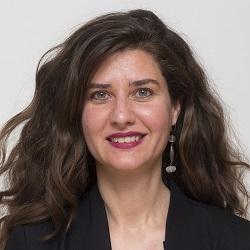European Economic
and Social Committee
Circulaire economie
De overgang naar een circulaire economie staat hoog op de agenda van het EESC om de klimaatcrisis te bestrijden en onze planeet te beschermen. De circulaire economie is een geweldige kans voor het maatschappelijk middenveld, aangezien zij kan helpen om:
- de concurrentiekracht van de Europese industrie te vergroten;
- duurzame economische groei te stimuleren;
- nieuwe banen te creëren.
Het lineaire productie- en consumptiemodel dat nog altijd de toon aangeeft in onze economie leidt niet alleen tot verspilling van hulpbronnen, maar ondermijnt ook de strijd tegen de klimaatverandering. In tegenstelling tot de lineaire economie is een circulaire economie regeneratief en herstelgericht en heeft zij als doel om economische waarde te creëren en te behouden, mondiale milieu-uitdagingen zoals klimaatverandering, verlies aan biodiversiteit en vervuiling aan te pakken, en tegelijkertijd voor economische voordelen te zorgen.
Het goede nieuws is dat de circulaire transitie in de praktijk al een feit is. Op lokaal en regionaal niveau worden tal van circulaire initiatieven opgezet en uitgevoerd door belanghebbenden uit het maatschappelijk middenveld, waaronder bedrijven, vakbonden, de academische wereld en kennisgemeenschappen, jongerenorganisaties, ngo’s en andere belangengroepen. Vaart zetten achter circulaire oplossingen en leiderschap van relevante belanghebbenden bieden Europa de beste kans om de overgang naar een circulaire economie te versnellen.
Het Europees stakeholdersplatform voor de circulaire economie, een gezamenlijk initiatief van het EESC en de Europese Commissie, is in 2017 dan ook opgericht als trefpunt voor de gemeenschap van de circulaire economie in Europa. Dit door belanghebbenden gestuurde platform ondersteunt de transitie van Europa naar een circulaire economie door een dialoog te bevorderen en kennis en goede praktijken uit te wisselen.

